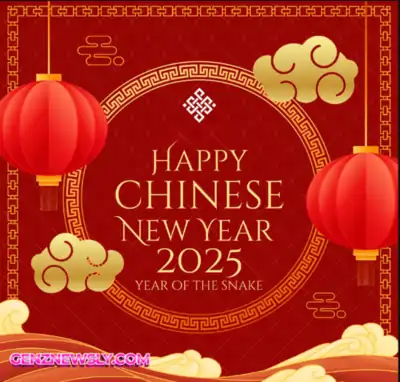
Table of Contents
Chinese New Year: Tradition, Celebration, and Meaning
What is Chinese New Year?
Chinese New Year, also known as the Spring Festival, marks the beginning of the Lunar New Year and is one of the most significant celebrations in Chinese culture. This festival is a time to gather with family, embrace age-old traditions, and welcome the year with hopes for happiness, good health, and prosperity.
Each year is associated with one of the 12 zodiac animals, such as the dragon, tiger, or rabbit, symbolizing unique traits and shaping customs and beliefs for the year ahead.
When is Chinese New Year Celebrated?
The date of Chinese New Year varies each year because it follows the lunar calendar rather than the Gregorian calendar. It typically falls between January 21 and February 20, coinciding with the first new moon of the year.
The celebration spans 15 days, filled with family gatherings, festive traditions, and cultural activities. It concludes with the Lantern Festival, a vibrant event featuring glowing lanterns, symbolic rituals, and wishes for a bright future.
Where is Chinese New Year Celebrated?
Chinese New Year is widely celebrated in China and across countries with significant Chinese communities, such as Singapore, Malaysia, and the United States. Cities like Beijing, Singapore, Kuala Lumpur, and San Francisco come alive with festivities.
Streets are adorned with red lanterns, banners, and symbols of luck. Parades showcase vibrant dragon and lion dances, while firecrackers burst loudly, creating an exciting and joyful atmosphere for everyone to enjoy.
Who Celebrates Chinese New Year?
Chinese New Year is a cherished festival celebrated by people of Chinese heritage around the world. It holds deep cultural significance and brings families together to honor traditions and welcome good fortune.
Beyond Chinese communities, many others join in the festivities, enjoying the colorful parades, traditional performances, and delicious foods.
The festival’s vibrant customs, like lion dances and red envelopes, have universal appeal and are embraced by people of all backgrounds.
Why is Chinese New Year Important?
Chinese New Year is a time to welcome good fortune, reflect on the past year, and share hope for the future.
It is rooted in ancient beliefs, such as driving away evil spirits and attracting prosperity. Families come together, honor ancestors, and celebrate with joy.
How is Chinese New Year Celebrated?
- Preparations Begin Early: Homes are cleaned to sweep away bad luck. Red banners with phrases of good fortune are placed on doors.
- Reunion Dinner: On New Year’s Eve, families gather for a big meal. Foods like dumplings, fish, and rice cakes symbolize wealth, luck, and growth.
- Fireworks: Loud fireworks and firecrackers light up the night, believed to scare away evil spirits.
- Red Envelopes: Elders give children red envelopes with money, symbolizing blessings and luck.
- Lion and Dragon Dances: Performers in colorful costumes entertain crowds, bringing good fortune.
- Lantern Festival: On the 15th day, people release lanterns into the sky or onto rivers, symbolizing hopes for a bright future.
Symbols and Traditions
- Red and Gold: These colors represent luck and prosperity. Decorations, clothing, and envelopes often use these colors.
- Zodiac Animals: Each year is tied to one of 12 zodiac animals. These influence New Year’s customs and predictions for the year.
- Festive Foods: Dishes like spring rolls and oranges are served because they symbolize wealth and success.
Why Do People Love Chinese New Year?
Chinese New Year is more than a holiday; it is a cultural celebration filled with meaning. It connects people to their families, roots, and hopes. With its lively traditions, delicious food, and colorful decorations, it brings joy and positivity to millions every year.
Resources:
https://en.wikipedia.org/wiki/Chinese_New_Year
Other Stories:
One Meal a Day Diet – Ultimate Health Transformation Guide
Disclaimer:
The information provided is for general knowledge and cultural appreciation purposes only. Traditions and practices may vary across regions and families. Please consult local customs or sources for specific details about Chinese New Year celebrations.
About the Author
Melissa Huinda She is skilled in different writing styles and easily adapts to various topics and audiences. Her ability to write compelling stories and meet deadlines makes her a valuable part of the fast-paced world of news writing.








